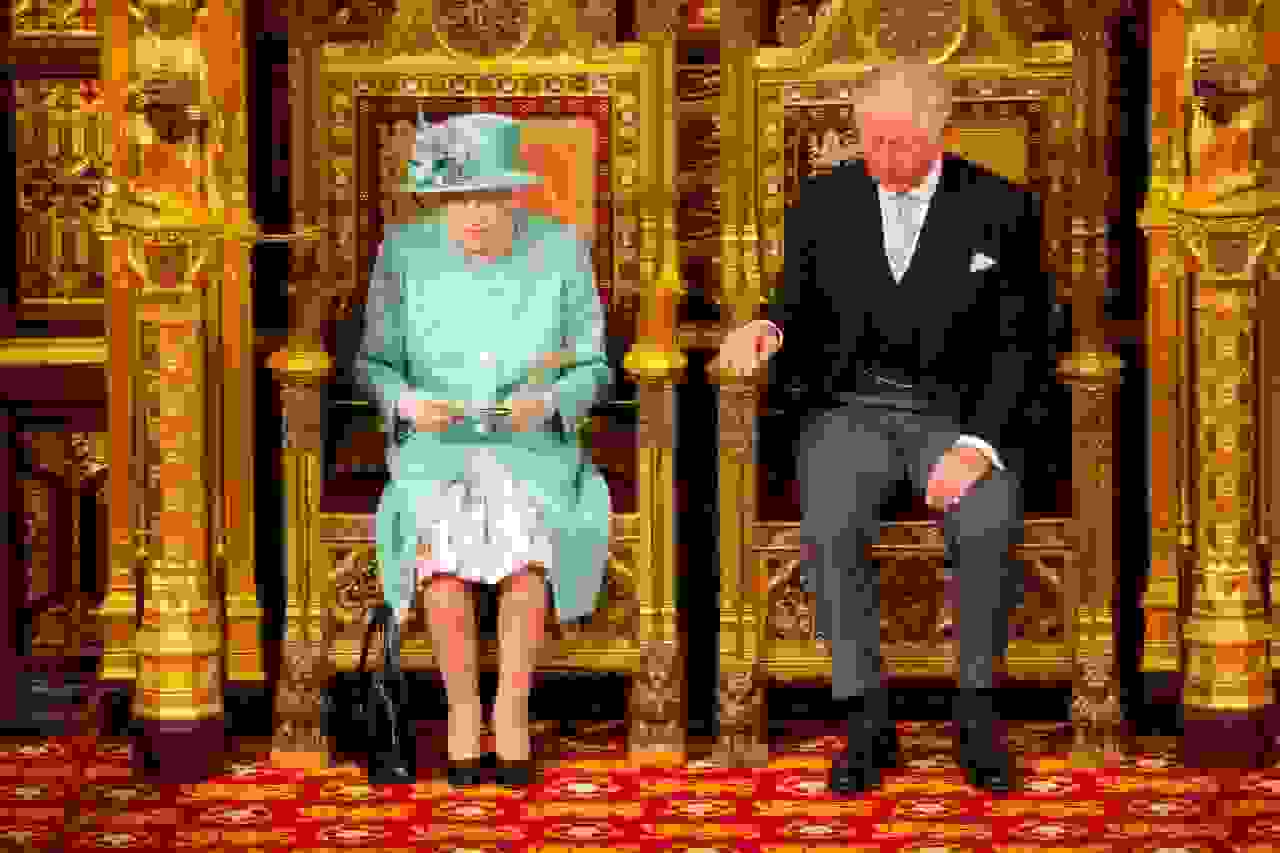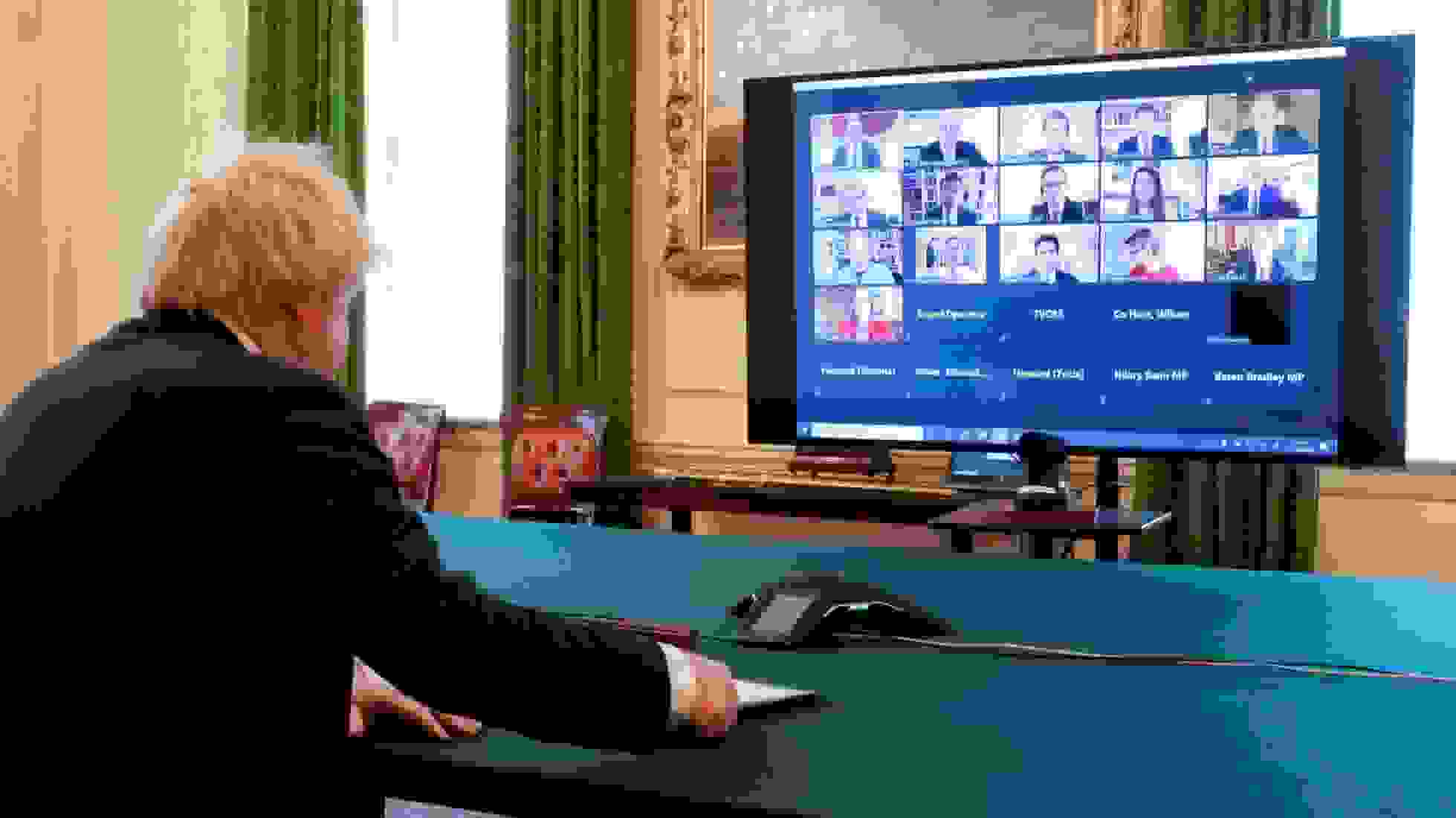What to look out for in Parliament in Autumn 2020
Fri. 28 Aug 2020
Politics in Autumn 2020 will continue to be dominated by Coronavirus and the negotiations with the EU, as the end of the post-Brexit transition period approaches on 31 December. But what will this mean for parliamentary business in the coming months, and what scope will there be to tackle other issues? We pick 15 things to look out for.


, Senior Researcher
Dr Brigid Fowler
Dr Brigid Fowler
Senior Researcher, Hansard Society
Brigid joined the Hansard Society in December 2016 to lead its work on Parliament and Brexit, as well as contribute to its ongoing research on the legislative process, parliamentary procedure and scrutiny, and public political engagement. From 2007 to 2014 she was a Committee Specialist for the House of Commons Foreign Affairs Committee, where she led on the Committee’s EU-related work. In the first six months of 2016 she was on the research team of Britain Stronger in Europe. She has also worked as assistant to an MEP in Brussels and as an analyst and researcher on EU and European affairs in the private sector and at the University of Birmingham and King’s College London.
After completing BA and MPhil degrees at the University of Oxford in PPE and European Politics, respectively, she spent the first part of her career focusing on the politics of post-communist transition and EU accession in Central Europe, and completed her PhD at the University of Birmingham on the case of Hungary. She has given media comment, appeared before select committees and published several journal articles and book contributions.
, Director
Dr Ruth Fox
Dr Ruth Fox
Director , Hansard Society
Ruth is responsible for the strategic direction and performance of the Society and leads its research programme. She has appeared before more than a dozen parliamentary select committees and inquiries, and regularly contributes to a wide range of current affairs programmes on radio and television, commentating on parliamentary process and political reform.
In 2012 she served as adviser to the independent Commission on Political and Democratic Reform in Gibraltar, and in 2013 as an independent member of the Northern Ireland Assembly’s Committee Review Group. Prior to joining the Society in 2008, she was head of research and communications for a Labour MP and Minister and ran his general election campaigns in 2001 and 2005 in a key marginal constituency.
In 2004 she worked for Senator John Kerry’s presidential campaign in the battleground state of Florida. In 1999-2001 she worked as a Client Manager and historical adviser at the Public Record Office (now the National Archives), after being awarded a PhD in political history (on the electoral strategy and philosophy of the Liberal Party 1970-1983) from the University of Leeds, where she also taught Modern European History and Contemporary International Politics.
Get our latest research, insights and events delivered to your inbox
Share this and support our work
A key priority for the government will be to secure passage of the seven outstanding Brexit-related bills outlined in the Queen's Speech by the end of the transition period at year-end (although at a push some bills may be more vital than others, and the 'saving' of EU-derived law that will take place on 31 December could provide something of a cushion if necessary). The government seems to have 'made up' much of the legislative progress lost to Covid in the House of Commons, where the Environment Bill - which has yet to complete its committee stage - is the main remaining casualty. Besides the Environment Bill, the Commons is left to complete the Fisheries Bill and Private International Law (Implementation of Agreements) Bill, both of which have already passed through the Lords and both of which the elected House starts to tackle in its first week back.
The House of Lords faces a heavy legislative load in the coming months. Of Brexit-related bills, after their return on 2 September Peers must complete proceedings on the Agriculture Bill and Immigration Bill and start scrutiny of the Trade Bill and the Medicines and Medical Devices Bill. Peers will then have to tackle the Environment Bill once the Commons has finished with it.
The government is also promising an Internal Market Bill and has said that it wants to see this passed by the end of 2020. The approach the government has adopted to consultation on the legislation - it published the White Paper in mid-July and has allowed only four weeks for responses over the summer recess - suggests that time is of the essence. Nonetheless, any bill that emerges may be slowed by constitutional controversy as the government finds itself on a pre-election collision course with the devolved administrations about the distribution of powers that are returning from the EU.
A significant unknown for the Autumn is the legislation that may be needed to implement any treaty or treaties struck with the EU to take effect from 1 January 2021. Further primary legislation may be required, possibly swiftly. (As things stand, any such treaty is only legally or procedurally guaranteed parliamentary debate if legislation is required, although it seems unlikely that non-legislative debate would be avoided.)
The government could introduce more unforeseen primary legislation as part of its further response to Covid-19, and it faces some tricky programming decisions as the priority likely to be enjoyed by Brexit and Coronavirus legislation will affect the scope that it has to introduce or make progress with other bills.
Of the nearly 40 bills outlined in the December 2019 Queen's Speech, 24 have been introduced and only six have achieved Royal Assent - although several others are at least coming towards the end of their proceedings. Statistically, the government has made more progress on bills which were not flagged in the Queen's Speech. Of these, it has introduced 13 (including those to tackle the pandemic) and secured Royal Assent for 10. Of bills that have been introduced but not yet passed, three are particularly likely to attract public and media interest: the Fire Safety Bill, which implements some of the recommendations of the Grenfell Tower Public Inquiry; the Domestic Abuse Bill, which commands wide cross-party support; and the Counter-Terrorism and Sentencing Bill, which strengthens sentencing provisions for terrorist offenders following the attacks on Fishmongers Hall (November 2019) and in Streatham (February 2020).

A number of Queen's Speech bills have effectively languished since the general election: for example, there have been no proceedings on the Overseas Operations (Service Personnel and Veterans) Bill since it was introduced in March, and there has as yet been little sign of the promised Employment Bill, Online Harms Bill or Serious Violence Bill.
After the Intelligence and Security Committee published its 'Russia Report' in late July, the government promised to bring forward the legislation flagged in the Queen's Speech to counter hostile state activity and espionage. The timescale is unclear, but given that the legislation deals with matters of national security, ministers may come under pressure to deliver as quickly as possible. The same applies to the promised National Security and Investment Bill. Will the government proceed with these bills quickly, or will it prioritise other issues it has highlighted over the summer? Recent media speculation has suggested that a bill to enable trials to be held without juries may be introduced to help tackle the backlog of crown court trials. There are also reports that the Home Secretary plans to bring forward new asylum legislation - the 'Fair Borders Bill' - in response to the number of migrants crossing the English Channel this summer.
Between March and July 2020 the government introduced five bills specifically to address immediate issues arising from the Covid-19 pandemic. Of these, the Coronavirus Bill contained the most wide-ranging emergency powers and was fast-tracked through both Houses in just four days. Under what is now the Coronavirus Act, every six months the government must secure the support of MPs (not Peers) to extend the Act's provisions for a further six-month period. The first review date falls on 25 September. Within seven sitting days of this date, the government must lay the statutory motion - 'That the temporary provisions of the Coronavirus Act 2020 should not yet expire' - before the Commons for a debate and vote.
Given the size of its majority, the government should be able to renew the Act if it wishes the provisions to remain in force. The legislation is controversial, and some government backbenchers with reservations about the extent to which it intrudes on civil liberties may be less accommodating of ministerial wishes than they were in March. However, to date, the powers in the Act have been used to lay just 12 Statutory Instruments; the more contentious regulations - regarding local lockdowns, the wearing of face coverings, and travel quarantines - have largely been laid using powers in the Public Health (Control of Disease) Act 1984.
Most of the legislative and regulatory changes to give effect to Brexit and tackle Coronavirus are being made through Statutory Instruments (SIs). An above-average proportion of these SIs are subject to the affirmative scrutiny procedure and thus require formal parliamentary approval, almost always by both Houses. This means that parliamentary time in committee and in the chambers has to be set aside to debate and approve the regulations (although some time savings can be made by bundling multiple related SIs together for debate).
The Leader of the House of Commons, Jacob Rees-Mogg MP, has said that the government expects to lay a further 250-300 Brexit-related SIs before the end of the year 'to ensure readiness for the end of the transition period'. (For example, there may be SIs required to implement 'successor' trade agreements for 1 January 2021 once the Trade Bill is passed.) The Leader of the House said that the government expects 55% of these SIs to be subject to the affirmative scrutiny procedure. If this number of SIs is realised, in the Commons it means potentially up to 165 Delegated Legislation Committees (of up to 90 minutes duration each) may need to be held, or time found to debate some of the SIs on the floor of the House.
Similarly, time will need to be found to consider the outstanding Coronavirus-related SIs that are also subject to the affirmative scrutiny procedure. Twenty-one of them have to be approved by Members of both Houses by 28 September alone. Given the limited availability of committee rooms suitable for social distancing on the parliamentary estate, and the existing pressures on legislative time in the Commons chamber, managing the SI approval process this Autumn may be challenging.
Current levels of economic uncertainty mean the government's fiscal plans for the coming months remain unclear. The results of the Comprehensive Spending Review -- launched in July -- are due to be published this Autumn, setting out the government's spending plans for the rest of the Parliament, as well as the interim results of its Net Zero Review exploring how the UK can maximise the opportunities arising from the transformation to a green economy. However, these could, conceivably, be delayed.

It is similarly unclear whether the government will press ahead with the budget statement promised for this Autumn. In his post-election budget in March, the Chancellor, Rishi Sunak MP, confirmed that a second budget would be held in the Autumn - not least to set out measures for the period after the post-Brexit transition. However, concerns about the implications of a second spike in Coronavirus cases nationwide and uncertainties arising from the ending of the furlough scheme in October may lead ministers to opt for a mini-budget rather than a full statement.
This degree of uncertainty over the fiscal policy timetable will complicate parliamentary scrutiny, in terms of both substance and process.
The afternoon of 16 September is a date for the diary: the Prime Minister is due to make his second appearance before the House of Commons Liaison Committee (the committee comprised mostly of select committee chairs). Liaison Committee Chair Sir Bernard Jenkin MP has indicated that the session may emphasise international issues, but the role of the Prime Minister and No. 10 in the government's Coronavirus response is likely to take centre-stage. After a damaging summer of policy u-turns, and with evident unrest among Conservative backbenchers, the Prime Minister will need a more confidence-instilling performance this time around than he managed in May.

In the House of Lords, the new Covid-19 Committee is one to watch. Chaired by Baroness Lane-Fox, the Committee is to consider the long-term implications of the pandemic for the UK's economic and societal wellbeing. As well as soliciting traditional written submissions, the Committee is inviting 'more creative contributions' including video, photo or audio submissions, or even poems or song lyrics, and is actively encouraging participation across all age groups.
In the Commons, most departmental select committees are now running some form of pandemic-related inquiry. These will continue to throw up items of set-piece departmental scrutiny work: for example, assuming he is still in post, Education Secretary Gavin Williamson's appearance before the Education Committee on 16 September will no doubt focus on his role in this summer's A-Level exam results fiasco and will be a high-profile test for the Committee. With the Chief Executive and Chair of the exam regulator Ofqual also due up before the Committee (on 2 September), Whitehall-watchers will be looking to see whether their evidence aligns with that of the Secretary of State, while Westminster-watchers will be keen to discover whether the Committee can establish on the record exactly who did what, when.
Meanwhile, the Health and Social Care Committee inquiries into workforce resilience, social care funding and the delivery of core NHS services during the pandemic could all be consequential, particularly if the Health Service struggles to cope with a confluence of winter flu and a second Coronavirus spike.
However, the Lords' new Covid Committee highlights the value of flexibility to be able to address cross-departmental issues such as the pandemic. Commons select committees are making welcome use of new 'guesting' provisions (whereby Members of one Committee can sit in on another), but the pandemic will continue to demand cross-departmental perspectives.
Meanwhile, the role -- and therefore scrutiny -- of the centre of government is also at issue, with the government both reviewing and apparently expanding the Cabinet Office, possibly raising questions over the roles of both the Public Administration and Constitutional Affairs Committee (PACAC) and the Liaison Committee in scrutinising the department in future.
The Department for International Development (DFID) and Foreign and Commonwealth Office (FCO) are being merged in September into a new Foreign, Commonwealth and Development Office (FCDO). The government wants the House of Commons International Development Committee (IDC) to be abolished, in line with normal 'select-committee-lineup-follows-departments' practice, but no such government motion is yet on the Order Paper, and there is resistance to a straightforward abolition with no further implications for Commons select committees. The chair of the IDC, Sarah Champion MP, is pressing for some form of committee to be retained to facilitate cross-departmental oversight of Official Development Assistance (ODA) strategy and spending allocations.
As things stand, the Foreign Affairs Committee (FAC) is set to inherit the ODA brief in full - but FAC already faces a wide-ranging scrutiny agenda, not least in addressing the government's Integrated Review of Security, Defence, Development and Foreign Policy. The Review - which is also the subject of a Defence Committee inquiry - was due to be completed later this year, but after work was temporarily halted because of the Coronavirus lockdown it is unclear when it is now expected to report.
Given periodic rumours over the longevity of the Department for International Trade, unresolved issues over the scrutiny of treaties and trade agreements, the perennial issue of the status of the Committees on Arms Export Control, and doubt - presumably - over the post-December existence of the European Scrutiny Committee and Committee on the Future Relationship with the European Union, Commons select committee scrutiny of international matters could be ripe for upheaval.
In the House of Lords, a new Common Frameworks Scrutiny Committee is to be established shortly after the return from the summer recess. The Committee will scrutinise those powers previously exercised at EU level that intersect with devolved competence, and where it is agreed that a UK-wide approach (a common framework) should be maintained, in areas such as agriculture, fisheries and the environment. As MPs have not considered explicitly how they will scrutinise these common frameworks, the task is expected to fall largely to individual departmental select committees to do so on top of their existing workloads. If such scrutiny fails to materialise in the Commons, much of the responsibility will fall on the new Lords committee, making it one to watch.
The relationship between the UK government and the devolved administrations, particularly in Scotland, will likely continue to be fraught throughout the Autumn, as the campaigns for the Spring 2021 elections to the devolved legislatures heat up. Throw in the disagreements likely to arise with the managing of the Brexit-related Common Frameworks and the Internal Market Bill, and the situation presents a recipe for constitutional confrontation.
Meanwhile, the results of the Review of UK Government Union Capability, launched in July 2019 and undertaken by Lord Dunlop, continue to sit on the Prime Minister's desk. The report was completed last Autumn but nothing has emerged to date. If it surfaces this Autumn, it could result in changes to government structures to strengthen the Union, which in turn would have implications for the scrutiny of those structures by both Houses of Parliament. The constitutional pressures bearing down will also highlight the need to significantly improve inter-parliamentary relations between Westminster and the devolved legislatures, as they all grapple with how best to scrutinise common but complex areas of legislation and policy.
This section was amended on 30 August 2020 to correct an error.
In its 2019 general election manifesto, the Conservative Party promised, after Brexit, to establish a Constitution, Democracy and Rights Commission to examine a raft of issues including updating the Human Rights Act, reform of judicial review, the functioning of the Royal Prerogative, the role of the House of Lords, and the relationship between the government, Parliament and the courts. Since Brexit, the political head of steam behind this agenda in the Conservative Party appears to have abated somewhat, and the emergence of the pandemic may have quashed any ambitious plans with respect to the scale of a Commission. However, the government has recently announced an independent review of administrative law, examining trends in judicial review of executive action, which is due to report later this year. Legal specialists will be watching it closely, given rising concerns about the government's commitment to and respect for the rule of law, and the implications for Parliament of any changes to judicial review. Once the review recommendations have been published, the report will almost certainly attract the attention of scrutiny committees in both Houses.
Parliamentarians will tackle this heavy agenda in Autumn 2020 amid uncertainty about arrangements for their own business, arising from the continuing implications of the pandemic.
2 September for the temporary Orders governing Chamber business (remote participation in scrutiny proceedings and proxy voting for MPs who have self-certified as being unable to attend at Westminster for medical or public health reasons related to the pandemic);
28 September for the overall pilot proxy voting scheme (on which the Procedure Committee is currently holding an inquiry); and
Given concerns about local lockdowns, a possible second Coronavirus spike, and maintaining social-distancing requirements on the parliamentary estate and particularly in the Chamber, it seems likely that the provisions will be renewed, but the motions required to do so may provide an opportunity for some MPs to reopen the debate about extending virtual proceedings and reinstituting the electronic voting system.
The House of Commons Commission is due to review the application of social-distancing measures in the Chamber before MPs return from the summer recess, following the government's introduction of a '1-metre-plus' rule in England in July. Concern about the lack of scrutiny of the government's pandemic plans may lead some MPs to push for more Members to be able to take part in proceedings and thus restore the normal parliamentary cut-and thrust in the Chamber. This may put some MPs at odds with the Speaker, who appears determined to follow public health advice favouring a cautious approach.
The parallel Chamber in Westminster Hall, which has been closed since March because of the pandemic, remains shuttered. Commons Leader Jacob Rees-Mogg has said he hopes that it will reopen in early October, allowing the restoration of Westminster Hall and e-petition debates, but it remains unclear if this will be achieved.
The House of Lords plans to continue meeting in 'hybrid' form - that is, mixing physical and virtual participation - for both legislative and scrutiny proceedings for the foreseeable future. In the event that Westminster had to go into a sudden lockdown again this Autumn, the Upper House would thus be better-placed than the Commons to cope. As things stand, there are no provisions to enable Commons Chamber and legislative committee business to continue on a hybrid basis without the House having first met physically to decide on such arrangements.

The strategic review of the Restoration and Renewal (R&R) programme for the Palace of Westminster, currently being undertaken by the R&R Sponsor Body, is due to report this Autumn. The review is examining the options for implementing the restoration programme, reviewing the evidence behind the proposals developed more than five years ago and approved by both Houses in the last Parliament to temporarily but simultaneously re-locate MPs to Richmond House on Whitehall and Peers to the Queen Elizabeth II Conference Centre in Westminster while the work is carried out. The Sponsor Body this month robustly kicked into touch the government's ill-thought-out suggestion of possibly moving the House of Lords to York, but in light of Covid-19 and the new economic situation there is a strong possibility that the previously-approved plans for a full decant of both Houses during the work could be revisited, with implications for the timescale, the cost, and the level of ongoing risk to the building and the safety of everyone on the parliamentary estate.
The government's plans to televise the afternoon press lobby briefing from October could have consequences for the House of Commons. The Speaker of the House, Sir Lindsay Hoyle MP, has been robust in asserting that major government announcements should always be made first in Parliament, and he has taken ministers to task several times in the last year for failing to do so. Having expressed concern that the broadcast briefing plan is 'not the way forward', will the Speaker take steps to publicly rein ministers in if his worst fears are realised?
Owing to the volume of business, the two Houses of Parliament are returning at the start of September a week earlier than originally planned; and both are currently due to sit continuously until Christmas, having cancelled their normal UK party conference recesses. The House of Lords has indicated that it nonetheless hopes to hold a short, week-long break in late October or November, and the Commons may do the same. If not, Members will be in for a long haul to the end of the year - by which point they will be beyond the normal roughly one-year length of a parliamentary session, with no date for the expected Spring 2021 prorogation yet fixed.
It could turn into an extremely fractious period, the government's majority notwithstanding, as MPs confront the Brexit transition deadline and as pandemic-related problems, particularly with the economy and unemployment, begin to pile up. It is worth remembering that less than a quarter of MPs in the Commons today have any parliamentary experience prior to 2010. When tested by events, they will have little collective knowledge and experience, particularly of urgent and serious economic problems, on which to call.
Fowler, B. & Fox, R. (2020), What to look out for in Parliament in Autumn 2020 (London: Hansard Society)
More
Related
Blog / The DCMS Committee, Facebook and parliamentary powers and privilege
For its 'fake news' inquiry the House of Commons DCMS Committee has reportedly acquired papers related to a US court case involving Facebook. Andrew Kennon, former Commons Clerk of Committees, says the incident shows how the House's powers to obtain evidence do work, but that it might also weaken the case for Parliament's necessary powers in the long term.
Blog / Debating 'meaningful votes'
Most analysis of the 'meaningful vote' has been from a purely Brexit perspective. But the arguments involved have broader, constitutional, significance, and concern Parliament’s role in the making of international agreements. MPs need to think about the powers they want, at what point in the process, and with what time and information at their disposal.
Blog / Fitting a transition / implementation period into the process of legislating for Brexit
The prospective post-Brexit implementation / transition period will require amendments to the European Union (Withdrawal) Bill. Some can be made by the promised Withdrawal Agreement and Implementation Bill, but some could be made before the EU (Withdrawal) Bill is passed. This blogpost by Swee Leng Harris summarises her new briefing paper.
Blog / Trade Bill highlights Parliament's weak international treaty role
The Trade Bill raises concerns about delegated powers that also apply to the EU (Withdrawal) Bill, and need to be tackled in a way that is consistent with it. The Trade Bill also highlights flaws in Parliament's role in international agreements. In trade policy, Brexit means UK parliamentarians could have less control than now, whereas they should have more.
Publications / Opening up the Usual Channels: next steps for reform of the House of Commons
In a speech to the Hansard Society on 11 October 2017, of which the full text and audio recording are below, the House of Commons Speaker, the Rt Hon John Bercow MP, proposed three key reforms for the House: a House Business Committee; reforms to procedures for Private Members' Bills; and a loosening of the government's exclusive control over recalling the House.
Blog / 'Bonfire of the quangos' legislation fizzles out
The forthcoming Great Repeal Bill will be the most prominent piece of enabling legislation since the controversial Public Bodies Act 2011.
Blog / "You can look, but don't touch!" Making the legislative process more accessible
Can technology help change the culture and practice of parliamentary politics, particularly around the legislative process?
Events / Future Parliament: Hacking the Legislative Process // Capacity, Scrutiny, Engagement
From finance to healthcare, technology has transformed the way we live, work and play, with innovative solutions to some of the world’s biggest challenges. Can it also have a role in how we make our laws?
Blog / Test page 004
At vero eos et accusamus et iusto odio dignissimos ducimus qui blanditiis praesentium voluptatum deleniti atque corrupti quos dolores et quas molestias excepturi sint occaecati cupiditate non provident, similique sunt in culpa qui officia deserunt mollitia animi, id est laborum et dolrum.
Blog / Test page 04
At vero eos et accusamus et iusto odio dignissimos ducimus qui blanditiis praesentium voluptatum deleniti atque corrupti quos dolores et quas molestias excepturi sint occaecati cupiditate non provident, similique sunt in culpa qui officia deserunt mollitia animi, id est laborum et dolrum.
Latest
Guides / Financial Scrutiny: the Budget
In order to raise income, the government needs to obtain approval from Parliament for its taxation plans. The Budget process is the means by which the House of Commons considers the government’s plans to impose 'charges on the people' and its assessment of the wider state of the economy.
Guides / Financial Scrutiny: the Estimates Cycle
In order to incur expenditure the government needs to obtain approval from Parliament for its departmental spending plans. The annual Estimates cycle is the means by which the House of Commons controls the government’s plans for the spending of money raised through taxation.
Data / Coronavirus Statutory Instruments Dashboard
The national effort to tackle the Coronavirus health emergency has resulted in UK ministers being granted some of the broadest legislative powers ever seen in peacetime. This Dashboard highlights key facts and figures about the Statutory Instruments (SIs) being produced using these powers in the Coronavirus Act 2020 and other Acts of Parliament.
Briefings / The Economic Crime (Transparency and Enforcement) Bill: four delegated powers that should be amended to improve future accountability to Parliament
The Bill seeks to crack down on ‘dirty money’ and corrupt elites in the UK and is being expedited through Parliament following Russia’s invasion of Ukraine. This briefing identifies four delegated powers in the Bill that should be amended to ensure future accountability to Parliament.
Articles / Brexit and Beyond: Delegated Legislation
The end of the transition period is likely to expose even more fully the scope of the policy-making that the government can carry out via Statutory Instruments, as it uses its new powers to develop post-Brexit law. However, there are few signs yet of a wish to reform delegated legislation scrutiny, on the part of government or the necessary coalition of MPs.